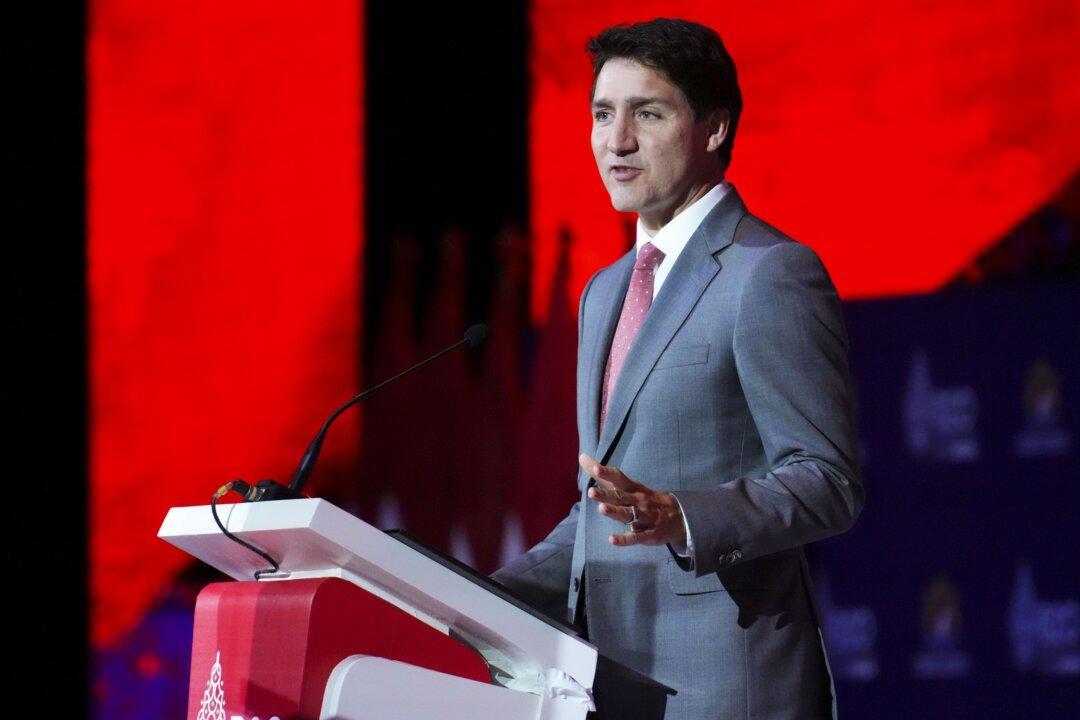Prime Minister Justin Trudeau repeated the government’s intention to stiffen regulations related to online hate at the Business 20 (B20) Summit in Bali on Nov. 14, saying that online “harassment and violence” need to be stopped while free speech is safeguarded.
Speaking to business leaders about technological advancements during the summit in the Indonesian province, Trudeau said Canada “is leading on the responsible development and use of artificial intelligence,” before adding that the federal government will be introducing “major legislative reforms” to strengthen children’s privacy protection.





